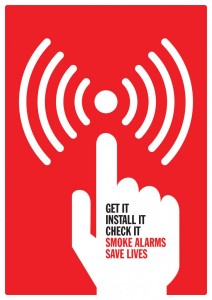
While having a smoke detector in your house is important, it is also important to maintain it properly. Agent Doug Raburn of Carroll County Farm Bureau and the Georgia Arson Control Board would like to provide the citizens of Carroll County with lifesaving smoke detector information and maintenance tips. According to the National Fire Protection Association, almost two-thirds of home fire deaths resulted from fires in properties without working smoke detectors. A working smoke detector significantly increases your chances of surviving a deadly home fire. Raburn also offers the following tips for protecting your family and home from fire:
• There are many different brands of smoke detectors available on the market, but they fall under two basic types: ionization and photoelectric.
• The United States Fire Administration (USFA) recommends that every residence and place where people sleep be equipped with both ionization AND photoelectric smoke detectors, or dual sensor smoke detectors, which contain both ionization and photoelectric smoke sensors.
• If the smoke detector is powered by battery, it runs on either a disposable 9-volt battery or a non-replaceable 10-year lithium “long-life” battery.
• Smoke detectors are not expensive and are worth the lives they can help save. Ionization and photoelectric smoke detectors cost between $6 and $20. Dual sensor smoke detectors cost between $24 and $40.
• Install smoke detectors on every level of your home, including the basement. Many fatal fires begin late at night or early in the morning, so the U.S. Fire Administration recommends installing smoke detectors both inside and outside of sleeping areas.
• Smoke detectors must be maintained! A smoke detector with a dead or missing battery is the same as having no smoke detector at all.
• The entire smoke detector unit should be replaced every 8-10 years.
• Since you cannot (and should not) replace the lithium battery, the entire smoke detector unit should be replaced according to manufacturer’s instructions.
• Test the alarm monthly!
###

